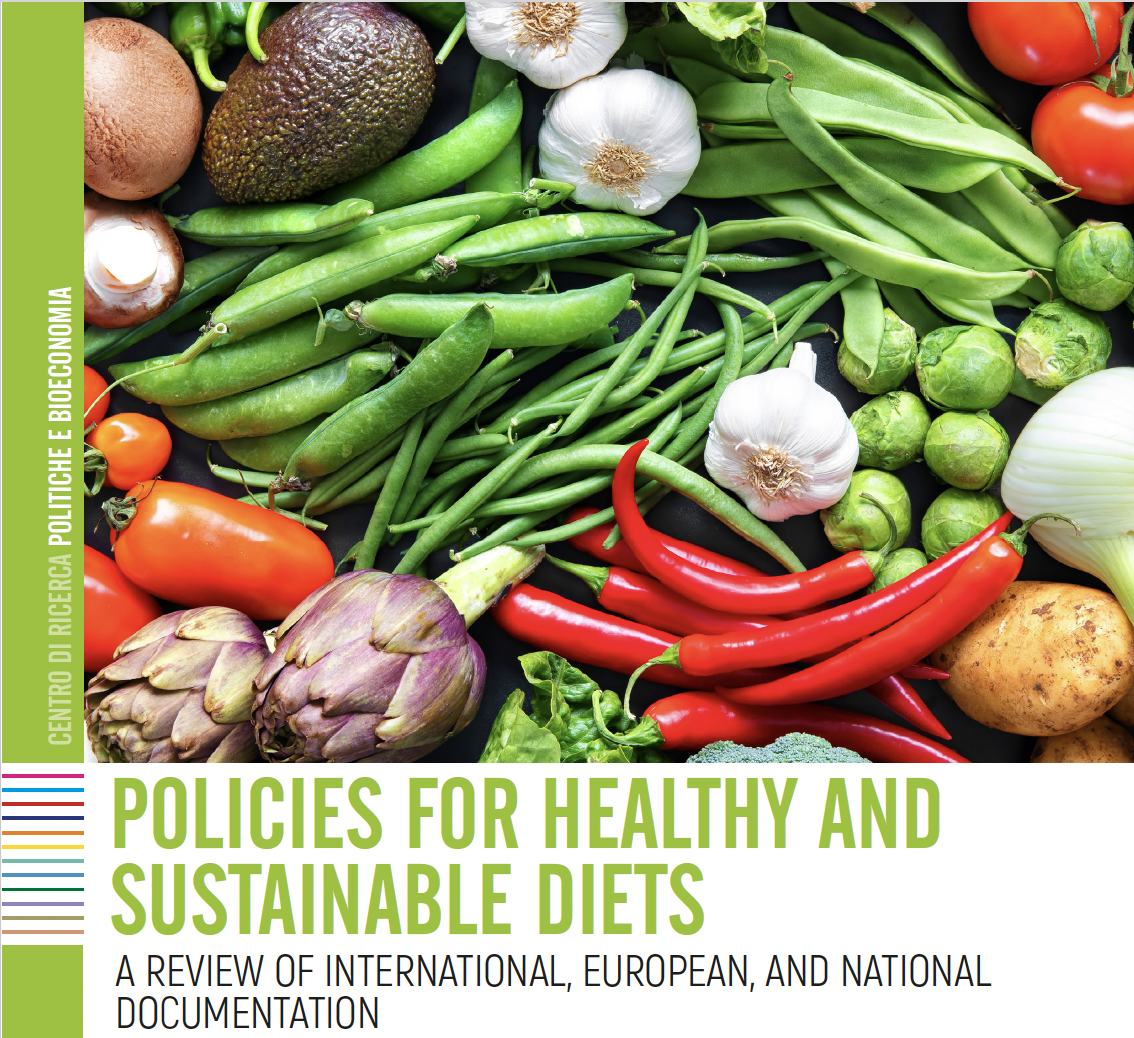Funded under the National Recovery and Resilience Plan (NRRP), Mission 4 Component 2 Investment 1.3, Theme 10.
What is the common understanding of Healthy and Sustainable Diets? What are the conceptual frameworks which bring to policies promoting diets consistent with healthy habits and planetary boundaries? The report “Policies for Healthy and Sustainable Diets” by CREA shed a light on these key questions for the OnFoods project, through a review of international, European and National (IT) documents.
In the last decade crises and profound changes in the socio-techno-economic systems have questioned the definition and conceptual frameworks of Healthy and Sustainable Diets (HSDs).
This is due to the growing recognition of the trade-offs that exist in the field of sustainability, i.e. the inevitable imbalance that occurs in its various spheres (economic, political, environmental, social) when choices or resources are limited.
In other words, what does Healthy and Sustainable Diets mean? If ‘healthy’ refers to aspects related to human health - although it could also be extended to the health of the planet as the OneHealth approach calls for - how can we define sustainability in such a broad and multifaceted topic? Can a diet be healthy for the planet, for humans, for economies and for societies? If so, what factor do cultural aspects, purchasing choices, and governance systems of food systems play?
In this context, a growing number of institutional documents, government agencies and high-level organisations are addressing the (re)definition of Healthy and Sustainable Diets, and the multiple factors that favour or hinder the creation of food systems that balance sustainable nutritional habits with fair, ecologically correct, and socially acceptable food supply mechanisms.
The report “Policies for Healthy and Sustainable Diets”, just published by CREA in the framework of the OnFoods project Integrated National Food Policy, focuses on building up an advanced and improved conceptual framework to orient policies supporting the promotion of Healthy and Sustainable Diets within the framework of national food policies.
The report, which is now available for free download, lays an indispensable building block for the OnFoods project, contributing to the definition of a concept as broad as it is multi-disciplinary.
Moving from the theoretical background around HSDs and the most widely recognised common definitions, the study has identified the major policy domains addressing the implementation of Healthy and Sustainable Diets. To this aim, CREA researchers have analysed the documents which focus on Healthy and Sustainable Diets at International, European and National level and checked the relevance of policy domains that have gradients of connection with their promotion.

The results show that Italian national policies on Healthy and Sustainable Diets are very much anchored to the nutritional and health dimensions and food consumption behaviours. They have elements of connection with food processing but are poorly connected with agricultural components and productive aspects of food systems, as well as those linked to socio-economic aspects. These dimensions are instead prevalent in International and European guidance documents, probably due to their non-binding nature and strategic direction.
Provided that a well-articulated conceptualization of Healthy and Sustainable Diets can define a set of goals for the well-being of the population and for more sustainable food systems, a key aspect that strongly emerged in the analysis is the capacity of Food Environments to serve as the connecting link between the definition of sustainability and health goals for diets, and the policies and tools to achieve them.
Food Environments can indeed represent frames and lenses through which to study the physical, economic, political, and socio-cultural environments and contexts in which consumers interact with food supply chain actors and decide what food to purchase, prepare, and consume. Indeed, Food Environments play an important role in shaping diets because they provide the choices people have when they make decisions about what to eat.
This blog post is related to
Policy, behaviour and education
Smarter behaviors for healthier diets
Referred to
Spoke 07Referred to
Spoke 07

